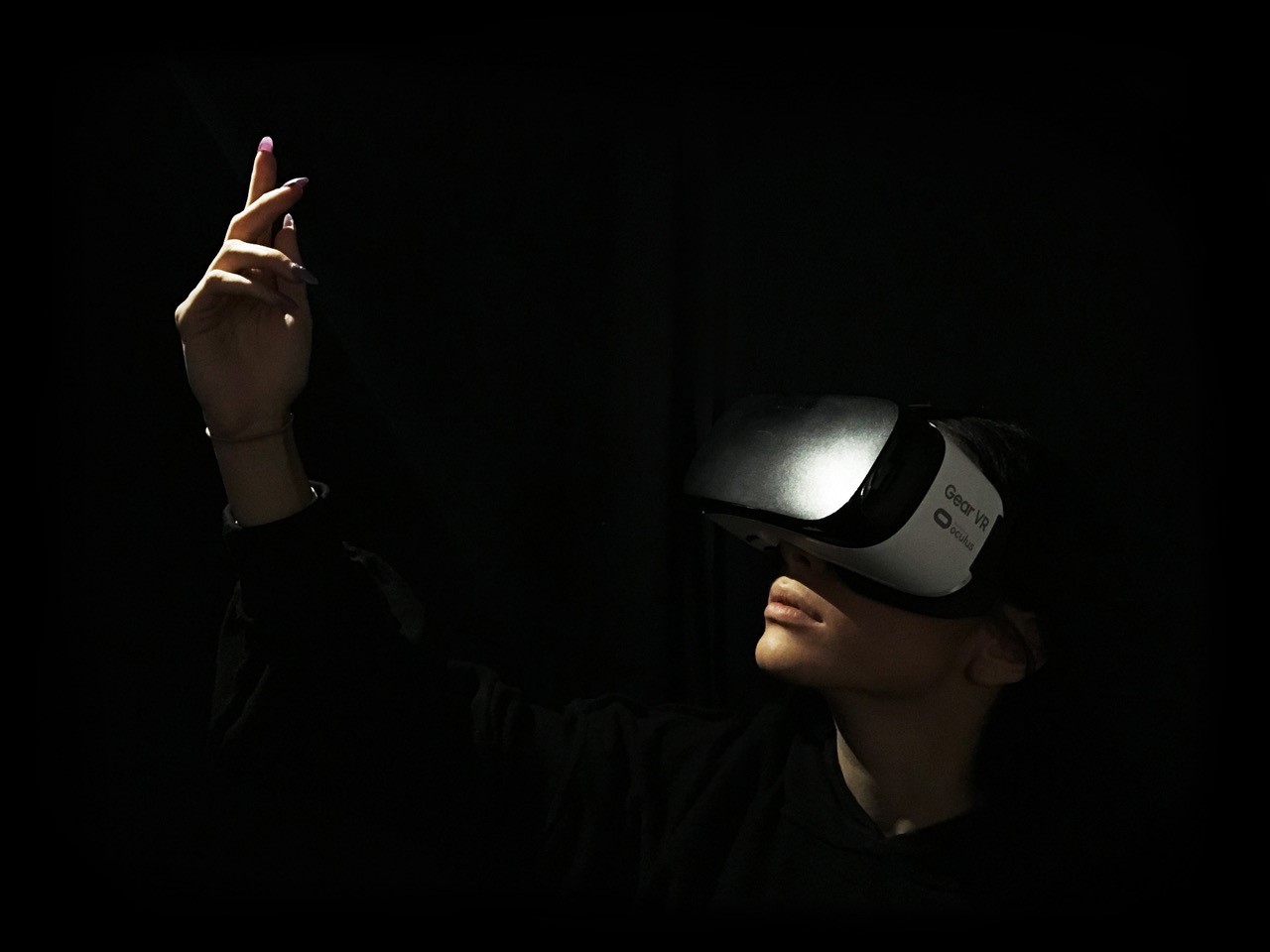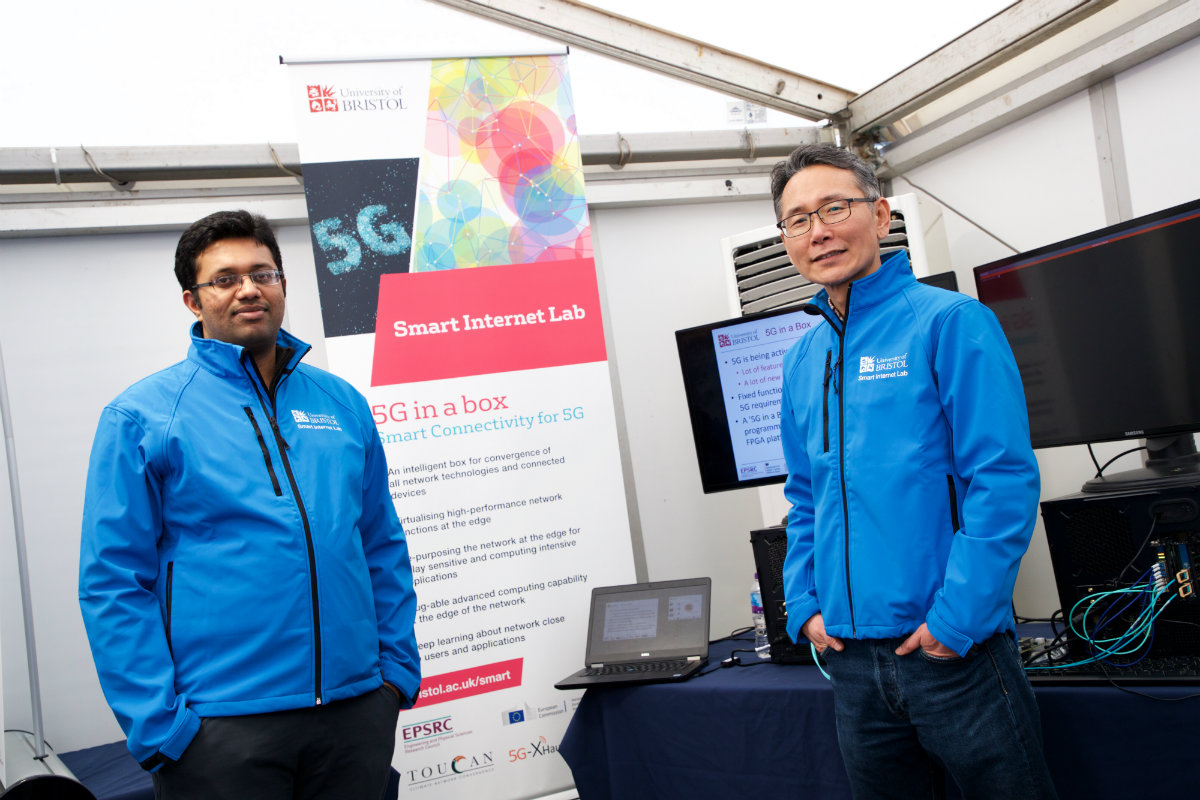5G in a BOX
An intelligent box for convergence of all network technologies & connected devices / Virtualisation of high-performance network functions at the edge / Re-purposing the network at the edge for delay sensitive & computing intensive applications / Plug-able advanced computing capability at the edge of the network / Deep learning about network close to users and applications
 Layered Realities Weekend - A 5G Showcase
Layered Realities Weekend - A 5G Showcase
Over the weekend of 17th - 18th March 2018, the University of Bristol's Smart Internet Lab hosted the world's first 5G public showcase in Millennium Square, Bristol. Demonstrations, talks and artistic experimentation combined in an exciting blend of technology and expression. This event ran in conjunction with Watershed & We The Curious.
Photo Credit: Kaleider's - 'From The Light Of Fire, Our Dancing Shadows'
Key technology sectors, such as Smart City, automotive and entertainment industries, are rapidly being transformed by capabilities offered by 5G. For 5G to support these sectors, also known as verticals, a high degree of technological convergence and programmability is required, empowering the verticals with enhanced technical capacity to trigger the development of new innovative products, applications and services.

The 5G in a Box team at the Layered Realities event in March 2018
“5G in a BOX” utilises advanced hardware programmable platforms and high-performance commodity computing servers to offer a generic and programmable platform for deployment at the edges of a 5G network. It enables different verticals to deploy and execute on-demand, application specific and customised low latency network functions at the edge of the network. It also provides a point of convergence for various wireless and wired 5G technologies and computing platforms that can be customised for specific services and technologies.
Technical Description
An end-to-end 5G network comprises heterogeneous types of technologies, from new radio such as Massive MIMO and millimetre wave, to high speed optical network and advanced computing platforms, such as mobile edge computing (MEC). Furthermore, most of the 5G network functions are virtualized as a software entity that requires a low latency computing platform, often at the edge of the network.
Availability of high-performance programmable and flexible hardware enables offloading network functions to the hardware and accelerates them. FPGAs (programmable hardware devices) are receiving increasing attention as a preferred programmable platform because of low cost and high performance. Unlike the software that executes in sequential order, FPGAs execute concurrently and hence support high data rate and lower latency. A '5G in a BOX' node utilises FPGA platforms and high-performance commodity computing servers to offer a generic and programmable platform for deployment at the edges of a 5G network. It accelerates execution of 5G network functions and also provides a point of convergence for heterogeneous wireless and optical transports as well as computing platforms.
 650x265_opt.jpg)